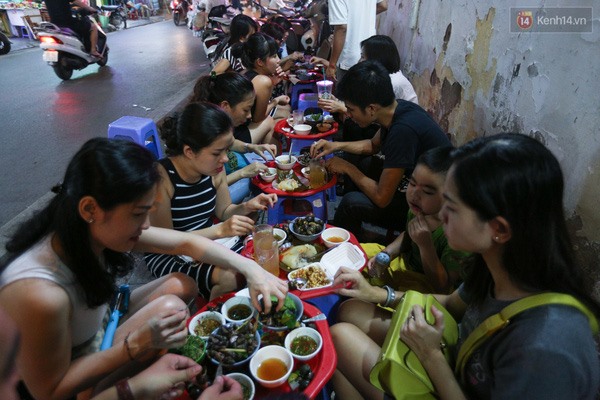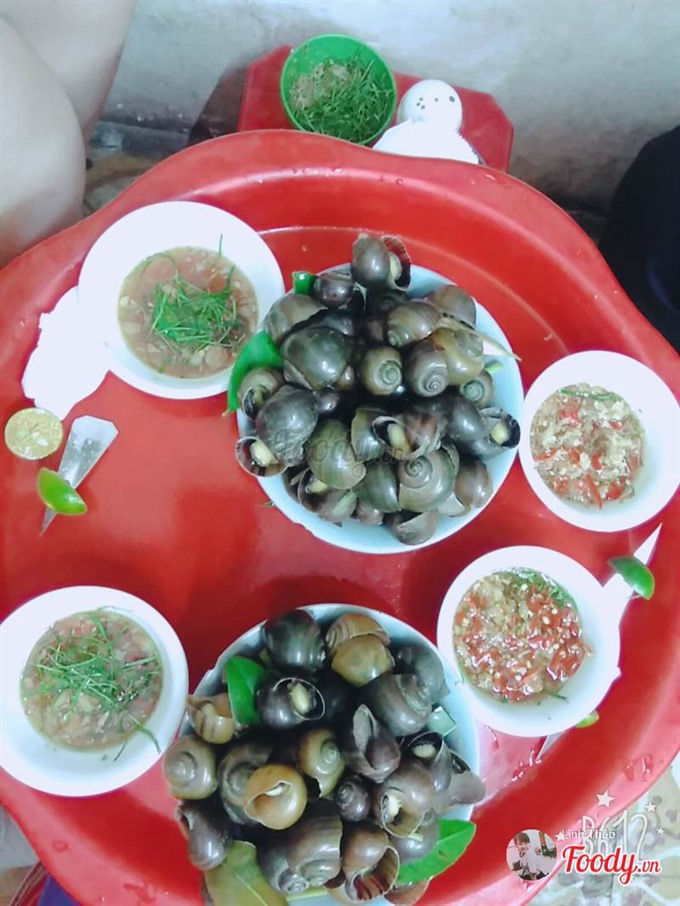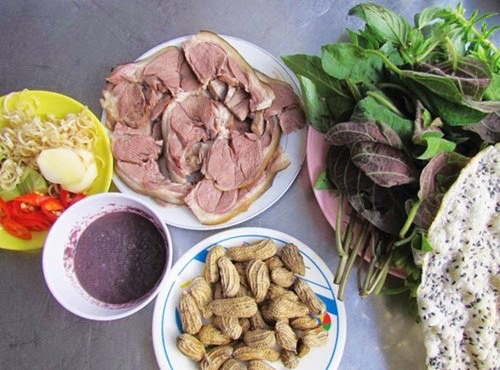Viet Nam News By Hà Nguyễn
Vietnamese dipping sauce and a huge variety of fresh aromatic herbs are the soul of the country’s cuisine.
A bowl of dipping sauce is almost always besides a Vietnamese meal. This is so different from the dishes of other nations, said culinary expert Lê Kim Chi of Quán Ăn Ngon Restaurant chain.
Chi said each kind of food had its own dipping sauce. For example, bún chả (fresh rice vermicelli and grilled pork slices), has its own delicious dipping sauce that US President Barack Obama said he enjoyed so much while visiting Việt Nam in 2016.
This sauce includes fish sauce, garlic, chili, sugar and pieces of kohlrabi and carrot.
Đỗ Thu Hà, 62 , who sells boiled snails in Hà Nội Old Quarter‘s Đinh Liệt Street, said she could sell as much as 200kg of snails a day because her food had been praised as one of most tasty snacks in the capital. She said the appeal of the dish was largely due to the fresh sauce.
Asked about her secret ingredients, she said: “I make my dipping sauce from fish sauce, which gives it its saltiness, kumquats which give it sourness, sugar for sweetness; all combined with the fragrance of ginger, garlic and lemon leaves, particularly peppery hot red chili. The recipe was handed down from my mother and existed for half of a century.”
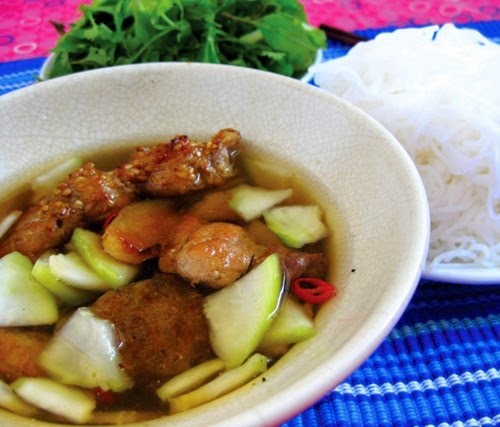 |
| Food for a president: A bowl of bún chả dipping sauce. |
Hà’s daughter Phạm Thu Trang, 34, said her mother was the first in the Old Quarters to think of how to use kumquat and citronella to create aromatic flavours for her dipping sauce.
Trang admitted that until now she could not learn how to make the sauce from her mother because she did all the processes, from cleaning the snails, boiling them - and cutting chili and lemon leaves.
“My mother does not dare to let us do this work because she is afraid we could spoil the sauce,” said Trang.
Each food should have its own dipping sauce. If a sauce is not good, the taste of the dish itself is also compromised.
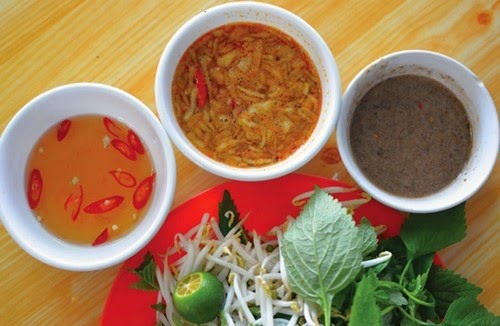 |
| Take your pick: Dipping sauces are essential at all daily meals.Photos amthucvietnam.com |
Herbalist Nguyễn Hữu Vinh, from the National Hospital of Traditional Medicine, said boiled snails may cause colds in the stomach, so ginger and garlic in the dipping sauce helped stop any pain or diarhoea..
One of my overseas Vietnamese friends, Dương Quang Chăn from the US, who is in Việt Nam for business, said he was interested in my frugal meal of boiled rau muống (morning glory) with a dipping sauce of garlic and chili soaked in vinegar and cà pháo (salted baby eggplant).
“The dipping sauce gives me a good appetite,” said Chăn, noting that he liked the sauces of traditional dishes, such as nem rán (fried spring roll -- minced pork and other ingredients wrapped up in thin rice paper), gỏi cuốn (boiled pork, shrimp and fresh herbs wrapped up in rice paper) because both had their own characteristics.
“I sometimes sip the sauce because I like its saltiness, sourness and peppery sweet taste. The sauces not only make overseas Vietnamese remember our homeland but also makes a lot of foreigners keen for the novel tastes," said Chăn.
Culinary expert Chi said unlike China’s plum sauce, or Japan’s wasabi or Italy’s tomato gravy, Vietnamese dipping sauces have special flavours help to express their philosophy of life.
She said apart from dipping sauce, aromatic herbs were also essential to Vietnamese dishes. The herbs such as coriandrum sativum, basil, marjoram, coriander and eryngium were eaten raw with certain foods.
For example, embryo duck egg should be eaten with thread-cut ginger (yang) and fragrant knotweed (yin) to prevent heat and diarrhoea or fried tofu with vermicelli should be eaten with mắm tôm (shrimp paste) and marjoram to make it more tasty and reduce bad smells.
Herbalist Vinh said these fresh herbs were also good antibiotics to treat many ailments such as fevers, colds, stomach-ache, head-ache or diarrhoea. They also helped to reduce obesity. - VNS
 Life & Style
Life & Style

